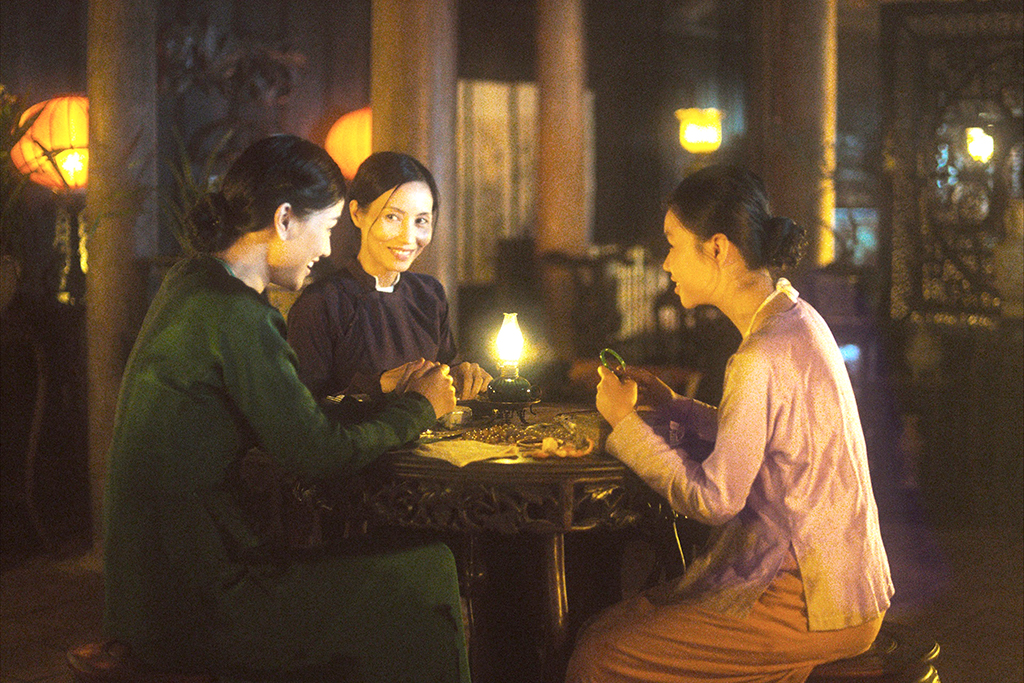By Andrew Hamlin
NORTHWEST ASIAN WEEKLY

![]()
![]()
![]()
![]()
Ash Mayfair, born and raised in Vietnam and schooled in film at New York University, chose a story from her own family tree for her striking debut feature, “The Third Wife.” Her own great-grandmother was one of several wives to her great-grandfather. While not, strictly speaking, a true story, the film takes inspiration from that story, and that era, during the 19th century. It becomes a meditation on what’s changed, what hasn’t, and what lasts.
May, the main character, is played by a young lady named Nguyen Phuong Tra My. As the film opens, we see her situation: She’s been married off into a rich family, and she’s the third bride to a much older man. Although she’s not much more than a child herself, she’s expected to serve this man, cater to him in bed, and most importantly, bear him at least one male child.
As she adjusts to her new life, she learns the rules. Her husband (Le Vu Long) has his own customs and his own expectations—a male child is only one of many. The oldest wife (Nu Yên-Khê Tran) gave her husband a male heir. The second wife (Mai Thu Huong Maya) has only birthed daughters, so far, which leaves her in a precarious position.
May does what she can to conform. But gradually, because everything in this film happens gradually, she discovers a few things about her circumstances, and herself. She will try to do her duty as a wife. But she conceals a rebellious nature, even if that doesn’t seem to have any way to break through.
And her heart does not lie with her husband at all. Her heart lies in a dangerous place, one that could eventually destroy more than one life.
But try as she might to toe the line, she can’t deny what she feels inside.
The film is hardly brazen or blazing. Watching it casually, you might think not very much happens at all. Mayfair, working adroitly with female cinematographer Chananun Chotrungroj, and with award-winning director Tran Anh Hung as adviser, finds Vietnam a perpetually gorgeous place. Sometimes the trees, skies, foliage, and rushing water distract from May’s discreet struggle. Sometimes they reinforce what the humans go through. Like human lives, nature cycles. The living landscape dies in time, then become reborn. Birth comes, and the pain and the urgency birth brings, against the impassivity of all else. Quiet moments, loud moments. Insects and animals struggle to be born, to live, to find a place in the grand design.
Except, of course, that by conventional wisdom at least, animals and insects, plants and trees, cannot push back against their nature, cannot push back against what they’re given. May, taking stock of her situation, might have that power. But what will she choose?
The director/writer points out in interviews that arranged marriages for young females still exist the world over. She’s quite right, and that’s a situation that needs changing.
But artistically, she’s gone beyond politics and culture. She’s authoritatively painted a life. A small life. But a full and rich life, with its own dignity. Its own worth. Its own fire.
“The Third Wife” opens July 26 at the SIFF Cinema Uptown. For prices, showtimes, and other information, visit siff.net/year-round-cinema/the-third-wife.
Andrew can be reached at info@nwasianweekly.com.



